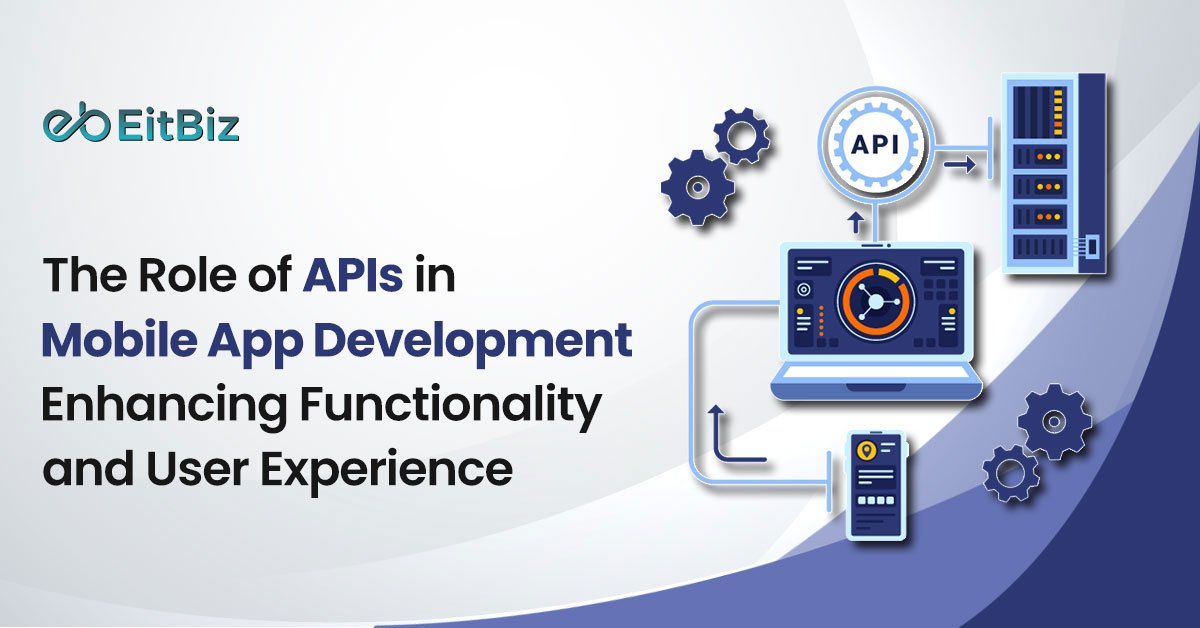You search for “How to Build a Mobile App”? and you will run into tons of articles on the internet!
But pause your thoughts for a while!
Though you may find tens of hundreds of articles, only a few of them might have covered the “importance of API in mobile app development”!
Let’s face it!
Have you ever wondered how these mobile apps communicate with external devices?
Even if you want to build a mobile app, at some point, how will you ensure your app can exchange information with other apps?
This is where the importance of “API” (Application Programming Interface) comes in!
From acting as a communication medium to facilitating seamless user experiences, it’s now nearly impossible to build an app without API!
Without further ado, let’s dive into the ins and outs of API!
| Table Of Contents: 1. What is API? 2. What are the Benefits of API Integration in Mobile App Development Projects? 3. How to Integrate API in Mobile App Development? Final Thoughts |
What is API?
To put it simply, an API refers to a set of essential protocols and rules to aid one mobile app/software to seamlessly interact with one another. Furthermore, it includes the data formats which may help communicate with each other. From retrieving data from the server to accessing specific functionalities of a software app, API is helpful for a multitude of purposes. Furthermore, they provide a structured way for building mobile apps to effortlessly integrate different software components and build upon existing systems without requiring to grasp the internal workings of each component.
Still don’t believe in API? Well, the facts don’t lie!!
- When it comes to enterprise-grade business projects, companies invest over 60% in API usage.
- More than 85% of businesses are using APIs in their mobile app development projects.
- Businesses that use API are 24% more likely to be profitable than businesses that don’t use API in their app-building projects.
Considering such facts, it’s inevitable to take API into account during mobile app development projects.
Though API is an interactive way to communicate one app with another, there are some incredible benefits associated, as well!
What are the Benefits of API Integration in Mobile App Development Projects?
Let’s take a look at the benefits of API integration in mobile app development.
#1. Enhanced Functionality
One of the biggest benefits of API in mobile app development is that it may enable developers to integrate advanced features and functionalities into their mobile apps. Let’s say you want to build an app that supports multiple languages, simply ask your app developers to integrate language translation API to enable multilingual support.
#2. Time & Cost-Efficiency
Another major benefit of API integration is that it may aid developers in saving valuable time and money in executing a specific series of tasks. Remember that when the time is saved, it may ultimately lead to a quick and hassle-free app development process and reduce the upfront costs of building apps.
#3. Scalability
If you want to integrate API in mobile app development, it allows you to add new features and even update existing features as per the changing market trends. Furthermore, it allows you to customize the app and make it relevant to the current tech landscape.
#4. Enhanced User Experience
One of the interesting aspects of the APIs in mobile app development is that they allow developers to seamlessly interact with other apps and services. Let’s say you integrate it with a cloud storage API, it may significantly enhance the file management capabilities within the app.
#5. Cross-Platform Compatibility
Last but not least, integrating API is an incredibly effective way to build cross-platform mobile apps by facilitating mobile apps between different devices and apps. The best thing is that users would receive a consistent and responsive experience across a multitude of platforms when APIs enable mobile devices to connect.
{Also Read: Why Cross-Platform Mobile App Development (Complete Guide in 2025?)}
#6. Real-time Updates
Another major highlight of API in mobile app development is that it provides real-time data which allows your app to display the latest information. Therefore, it is incredibly helpful for mobile apps that fetch real-time online information about news, weather, cricket scores, financial updates, and more.
#7. Unmatched Security
Last but not least, API integrations can significantly improve mobile app security to an unprecedented scale. With API integrations, developers can efficiently use secure, safe, and authenticated APIs to efficiently handle user authentication, authorization, and data encryption. Thus, it would enable developers to reduce the risk of security vulnerabilities and ensure that the information is managed in a protected environment.

How to Integrate API in Mobile App Development?
With abundant API integration benefits, it’s no secret why it’s gaining so much popularity among businesses of all kinds. It’s no secret that integrating APIs in mobile app development is an essential aspect that allows your app to communicate and interact with additional apps or software.
#1. Understand the API Documentation
Make sure you begin the process by reading the document provided by the API provider. Ensure you go through the methods of authentication, response formats, and specific guidelines. Remember that if you don’t understand the documentation, it’s of no use to run into integrating APIs in mobile app development. Ensure you spare some time and understand how your app communicates with the APIs.
#2. Don’t Forget to Choose the Right API
In the next step, you need to choose the right API. Do extensive research to select APIs that match your app’s features and functionality. Make sure you evaluate the API documentation, response times, and scalability to facilitate a smooth user experience. Furthermore, you cannot overlook the importance of other crucial aspects, including data security, update frequency, and community support.
#3. Account Creation Step
There is no denying the fact that many APIs demand authentication to keep the app safe and protected. Try to establish a secure connection on the API provider platform. Make sure you navigate to their website, initiate the sign-up process, and provide the necessary information. Once you are done with the registration, make sure you access the developer dashboard to generate an API key or credentials.
#4. Integrate and Authenticate
In the next step, you will need to decide whether you want to make direct HTTP requests to the APIs or use SDKs. If you, however, choose the former then you may need to run into coding. On the other hand, if you choose the latter then you can easily transform complex operations into user-friendly functions. Once you’re done with integration, you need to authenticate to validate your app’s identity. Make sure you integrate token-based authentication to protect your app against unauthorized access.
#5. Don’t Forget to Implement API Requests
It is an essential aspect of API integration in mobile app development where you may need to utilize purpose-built libraries to streamline complex networking tasks. Not only does it help enhance the app’s efficiency but also it may help maintain a streamlined and organized database. Furthermore, if you want to enhance the credibility aspect, make sure you implement retry mechanisms and alleviate failures completely.
#6. Handle Responses Efficiently
Remember that if you cannot handle responses, your complete mobile app development project may go in vain! Make sure you leverage libraries to seamlessly convert these customer responses into actionable insights. Furthermore, you should extract meaningful data to ensure accuracy and avoid errors. Make sure you regularly check errors to manage unexpected variations which would ultimately enhance reliability and user satisfaction.
#7. Error Handling
In the second last step, you need to look out for the errors that may arise during the mobile app development project. Make sure you navigate network errors, glitches, and unexpected API responses with finesse. Furthermore, you should focus on creating informative error messages that perfectly resonate with your users. Make sure you implement a strong error-handling mechanism to significantly enhance the app’s credibility and contribute to a unified user experience.
#8. Testing
Once you are done with everything about API integration in mobile app development, you need to examine the app’s reliability via testing. Make sure you use various testing tools for complete assessments which ensure each facet of the integration is examined from start to finish. Furthermore, you need to focus on improving your testing strategy with automated tests and enhancing scalability.
Remember that when you test your mobile app then it ensures your app stands tall in terms of performance, efficiency, and user-friendliness.
Final Thoughts
So, there you have it! That’s a wrap to the role of APIs in mobile app development in 2025! It is no secret that mobile apps require effective communication and APIs are an ideal option to achieve it. From enhancing the app stability to complete app compatibility, APIs play an incredibly important role.
Finding the right professional assistance to integrate APIs in app development? If so, look no further than EitBiz! Simply visit EitBiz and let our mobile app developers integrate APIs into your app development project. Drop us an email at info@eitbiz.com or call us at +1(812)530-6300 today!







